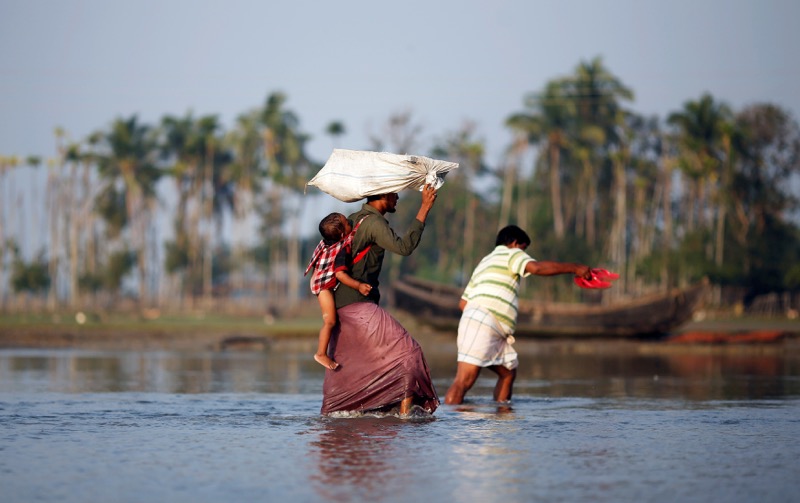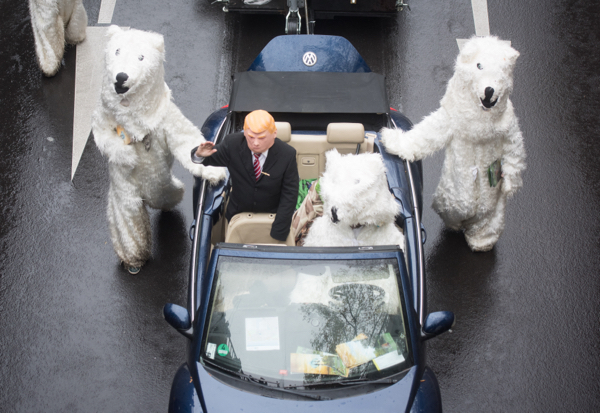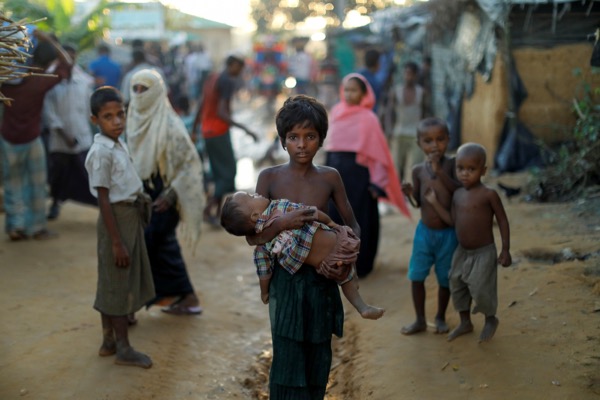Myanmar’s cardinal is warning Pope Francis against using the word “Rohingya” when he visits the country later this month as it risks sparking protests.
Cardinal Charles Bo, the first churchman from his country to receive a red hat, has had his work cut out in recent weeks. Not only has he been trying to arrange the first ever papal visit to his country, but he’s also been walking the most delicate of political tightropes between the Pope’s desire to speak out for the Rohingya people and the pressure from forces in Yangon that Francis avoids the “R word.”
During an interview with The Tablet this week in Rome, the cardinal comes over as someone who is wearing the pressure lightly. A warm, pastorally-minded Salesian religious, Bo laughs as he talks about turning the office of his house in Yangon into a place for the Pope to stay during his time in the country. “People are very excited about the visit,” he said, adding that the state-run media will broadcast the trip.
Yet behind the scenes the pressure is mounting and tomorrow Cardinal Bo is due to meet Pope Francis. Francis has repeatedly spoken out against the plight of the Rohingya people, mostly Muslims, who have been driven across the border from the Rakhine state in the west into Bangladesh, in what the United Nations has described as a “text book case” of ethnic cleansing.
The Pope has raised the plight of the Rohingya on more than one occasion but faces a dilemma of how he should address the matter when he travels to the Buddhist-majority country on 26th November for a three day visit. Cardinal Bo is advising against using the “R” word, arguing that it risks sparking “a very strong demonstration and opposition”. The plight of the Rohingya is a major test to the country’s fragile transition democracy, taking place after decades of military rule. Military leaders and Buddhist figures do not accept the phrase because it presupposes that those in the Rakhine are citizens of the country rathe than recent arrivals.
“It would be very contested if the Pope was to use the word ‘Rohingya’,” Cardinal Bo tells me. “The word is not accepted by the government, the military, the Buddhist community.”
Bo went on: “He could use another phrase, such as ‘the Muslims of Rakhine state’.”
The atrocities committed against the Rohingya, he told me, came after attacks on 30 police stations by Muslim militants in the Rakhine state but Bo also criticised the violence used of the military, who had responded by “burning villages” and driving people across the border into Bangladesh, to where the Pope will travel from Myanmar and Bo argues it would be more prudent for Francis to raise the Rohingya by name he is in the Muslim-majority Bangladesh. Francis, the cardinal stresses, will be bringing an inclusive message of peace, which the Church in Myanmar – a minority of 700,000 out of a population of 51 million – also seeks to do.
The major event of the Pope’s visit in the country will be a Mass on 29 November at the Kyaikkasan Ground in Yangon, expected to be attended by 150,000 people from all faiths. And on the same day he will also meet with members of the Sangha, the council of Buddhist leaders.
One effect of the Rohingya crisis has been the tarnishing of Aung Sang Suu Kyi’s reputation as an icon of democracy. The country’s de facto leader has been heavily criticised across the world for her failure to speak out against the brutal violence in Rakhine. Oxford, where she lived and studied for many years, has stripped her of the Freedom of the City, while aid campaigner Bob Geldof has branded her a “handmaiden of genocide”.

A Rohingya refugee carries his son and belongings into Teknaf, Bangladesh, 25 October ©CNS
While admitting she could have spoken up sooner, Cardinal Bo believes people have been too quick to judge the Nobel Peace prize winner.
“Democracy in Myanmar is very fragile, and for the time being everything is depending on her,” he explains adding that western media does not give the full picture of the events inside Myanmar. “I would ask the international community to try to understand and not abandon her. If she is no longer there then everything could collapse again.”
The cardinal is a family friend of Suu Kyi. He knows her two sons and was friendly with her late husband, Michael Aris, an Oxford university historian who was an expert on Himalayan culture. Aris was educated at the Benedictine-run Worth School, in West Sussex. The personal sacrifices she and her family made for democracy in Myanmar are movingly documented in Luc Besson’s film The Lady.
Despite the fact Suu Kyi is being criticised internationally and is being stripped of some of her titles, the cardinal says she retains a popular following in Myanmar. “One thing they cannot take away is the love people have for her.”
Her major difficulty is that while the generals might have opened the way for the country to become more democratic, the military still retain much of the power with a 25 per cent share of parliamentary seats, the control of borders and home affairs.
According to his official programme, however, the Pope is not due to personally meet Myanmar’s military leader General Min Aung Hlaing although given their continuing influence the cardinal is arguing it would be wise for Francis to pay a courtesy call. Following a meeting between Francis and Aung Sung Suu Kyi in May the Holy See and Myanmar announced full diplomatic relations, a diplomatic coup for the Pope given the country is the biggest in South East Asia and borders China. That is significant as the Vatican has for years been trying to re-establish relations with Beijing with Francis pushing for an agreement.
The Church in Myanmar, Cardinal Bo, explains makes up 1.3 per cent of the population and co-exists peacefully with Buddhists and Muslims. It has historically run schools - although 100 of these were nationalised in 1965 - and today is closely involved in Myanmar’s nation building. The cardinal says the Church is focussed on five areas - education, peace, the role of women, rights of ethnic groups and integral development - and he is hopeful that the nationalised Catholic schools will be returned to their former ownership.
This is not the first trip where a particular word uttered by the Pope could cause controversy. During a trip to Armenia last year, the Pope used the word “genocide” to describe the killing of Armenians by Ottoman Turks at the beginning of the 20th century. He did so even though wasn’t included in the prepared speech distributed to journalists before his meeting with Armenia’s president.
Christopher Lamb speaks to Cardinal Bo, Archbishop of Yangon, Myanmar:
PICTURE: A young Rohingya refugee carries a child on 10 October while walking in a camp near Cox's Bazar, Bangladesh ©CNS
Wish to comment on this story? Join the debate on Facebook and follow on Twitter.



 Loading ...
Loading ...